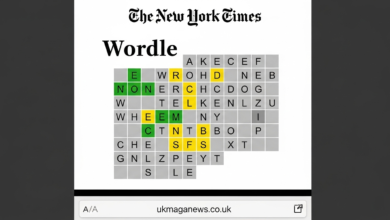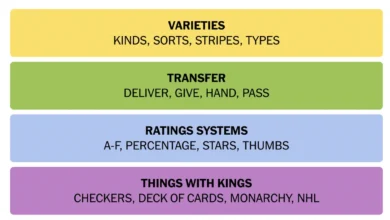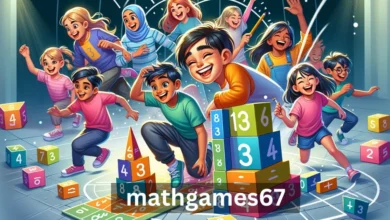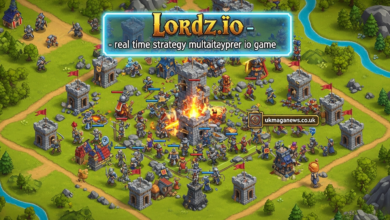Exploring the Octordle Sequence: A Comprehensive Guide
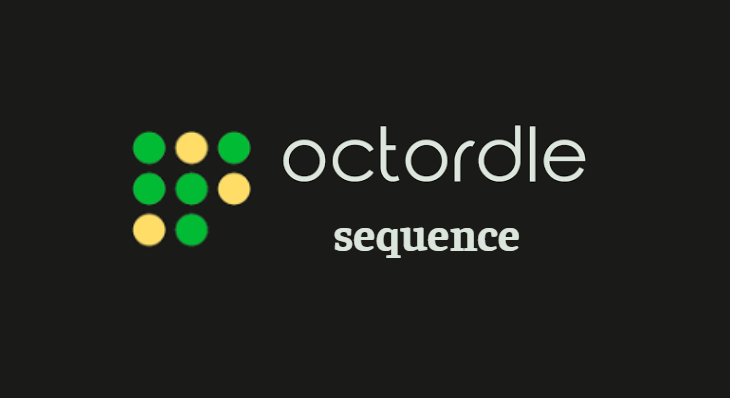
Introduction to Octordle Sequence
The octordle sequence has emerged as a captivating phenomenon within the realm of word games and puzzles. It is distinct due to its multi-faceted approach to engaging players, focusing on the challenge of solving multiple word puzzles simultaneously. In essence, the octordle sequence requires participants to guess eight different words in a single game session, utilizing a shared set of clues and letters. This complexity adds an extra layer of excitement and depth compared to simpler word games like Wordle, which limits players to a single word per round.
Understanding the octordle sequence involves acknowledging its foundational components, which include strategy, vocabulary skills, and critical thinking abilities. Players must navigate their guesses carefully, considering how chosen letters can serve in multiple solutions. This interrelated network of guesses amplifies the cognitive challenge, prompting users to devise coordinated strategies as they work through the puzzle. Such engagement not only elevates the gaming experience but also enhances language proficiency and provides a stimulating mental workout.
As the popularity of the octordle sequence continues to grow, it stands alongside other similar games, such as quordle and sedecordle. Each of these games contributes to a varied landscape of wordplay, catering to different skill levels and preferences. While they share a common goal of word discovery, their unique structures and rules set them apart, making the octordle sequence a rather intriguing option for both seasoned word game enthusiasts and newcomers alike.
This blog post aims to further explore the intricacies of the octordle sequence, examining its features, strategies for success, and tips for enhancing player performance. As we delve deeper, we will uncover the appeal and significance of this exhilarating puzzle format in promoting linguistic skills and critical reasoning.
Understanding the Mechanics of Octordle Sequence
The octordle sequence presents players with a unique and engaging word puzzle experience. This game requires participants to guess eight words simultaneously, utilizing a single set of guesses. The objective is to identify all the hidden words within a specified number of attempts, which typically hovers around thirteen. Each guess not only contributes to one word but impacts the overall strategy for all eight words.
Players begin by entering a five-letter word, which will then prompt feedback indicating the correctness of the letters used in the guess. The interface displays each word’s progress simultaneously, color-coding the letters to show correct placements and correct letters located in the wrong positions. This instant feedback becomes vital as players aim to adjust their subsequent guesses based on the information gleaned, creating a feedback loop that helps evolve the gameplay. The octordle sequence relies heavily on players’ abilities to extrapolate from the known to unknown, using logical deduction to uncover the correct words.
Ultimately, the mechanics of the octordle sequence are designed to enhance player engagement through cognitive challenge, fostering a learning environment where players can improve their word-guessing skills while enjoying the thrill of the game.
Strategies for Mastering the Octordle Sequence
Players seeking to excel in the octordle sequence can benefit from a variety of strategies that enhance their performance and overall enjoyment of the game. One of the most effective techniques involves recognizing patterns within the sequences presented. By looking for recurring letters and common word structures, players can develop an intuitive sense of which words are more likely to fit the given constraints. This pattern recognition can save time and increase the accuracy of guesses made during gameplay.
Another essential strategy is to make educated guesses based on the information already acquired from previous attempts. Players should carefully analyze the feedback provided after each guess, allowing them to narrow down their options effectively. Keeping track of which letters have been confirmed or eliminated helps in significantly refining future guesses, thus increasing the likelihood of successfully solving the octordle sequence.
Word associations play a pivotal role in enhancing problem-solving skills. Players are encouraged to think beyond immediate possibilities and explore related words that fit the known criteria. Creating word associations can help generate a broader pool of potential guesses, thereby boosting the chances of navigating through harder sequences. Collaborative gameplay can also be beneficial, with players brainstorming together to explore diverse perspectives and suggestions.
Additionally, maintaining a positive mindset and being patient are crucial when engaging with the octordle sequence. Each puzzle presents its unique challenges, and perseverance is key to overcoming them. Regular practice will naturally lead to improved skills and quicker recognition of effective strategies. By incorporating these various approaches, players will find themselves progressively mastering the octordle sequence and enjoying the myriad of challenges it offers.
Common Challenges in the Octordle Sequence
Engaging in the octordle sequence can be a rewarding yet challenging experience for players. One of the prevalent difficulties participants encounter involves problematic word combinations. The octordle format pushes the boundaries of vocabulary as players are tasked with guessing eight words simultaneously. This can lead to confusion, especially when words share similar letters or patterns. Players might find themselves fixated on a certain letter combination, inadvertently overlooking viable alternatives. A strategic approach to developing a diverse set of guesses can help mitigate this challenge by expanding one’s focus beyond initially perceived options.
Time management is another significant hurdle that players contend with in the octordle sequence. The pressure of a ticking clock can induce haste, often resulting in suboptimal choices. Successfully exploring eight distinct words within a limited timeframe requires careful planning and a systematic approach to guessing. Many players may benefit from allocating specific time segments to different words, allowing for a structured framework to combat the overwhelming nature of simultaneous guesses. Practicing with varying time constraints can also enhance one’s ability to think quickly and efficiently during critical gameplay moments.
Additionally, the frustrating moments that arise during gameplay can be detrimental to a player’s overall experience with the octordle sequence. Such instances may include repeated incorrect guesses or the inability to identify the correct word despite extensive reasoning. Developing coping strategies to manage these feelings is essential. For instance, taking short breaks after particularly challenging rounds may provide players with a refreshed perspective upon return. Furthermore, maintaining a positive mindset and focusing on incremental improvements rather than immediate results can enhance enjoyment and resilience in the face of adversity.
The Role of Vocabulary in the Octordle Sequence
Vocabulary plays a crucial role in mastering the octordle sequence, a game that challenges players to decipher eight words based on limited guesses. A strong vocabulary can significantly enhance the player’s ability to efficiently identify potential words while also enabling them to strategize their guesses more effectively. In this context, vocabulary encompasses not only the breadth of known words but also the depth of understanding regarding word structures, common prefixes, and suffixes, which can provide valuable clues during gameplay.
Players with an extensive vocabulary are often better equipped to parse the octordle sequence, as they can draw upon a larger pool of linguistic options. This versatility allows them to make educated guesses based on partial information or known letters. For instance, recognizing common patterns within the length and structure of words can facilitate quicker identification of potential solutions. Furthermore, familiarity with less common words can give players a competitive edge, particularly when faced with challenging sequences where standard guesses may not yield favorable results.
To expand one’s vocabulary, players can engage in several effective practices. Reading regularly across a variety of genres—including literature, science fiction, and non-fiction—can expose players to diverse language use and new words. Additionally, utilizing vocabulary-building apps or online tools designed specifically for enhancing word knowledge can serve as beneficial resources. Participating in word games or puzzles, much like the octordle sequence, can also provide both entertainment and learning opportunities, reinforcing word recall and application through playful engagement.
Incorporating these strategies can transform a player’s approach to the octordle sequence, where each word guessed is a step toward mastery. By focusing on vocabulary development, players can not only improve their performance in the game but also enrich their overall language skills.
Analyzing the Evolution of Octordle Sequence Games
The octordle sequence games signify an intriguing development in the realm of interactive puzzles that have captured the imaginations of enthusiasts and casual gamers alike. Originating from the success of traditional word puzzles, the octordle game format expands on the foundational principles laid out by its predecessors. The concept of solving multiple words simultaneously presents a unique challenge that requires both critical thinking and strategic planning, effectively setting the stage for an engaging gaming experience.
Initially, the octordle sequence was conceived as an enhancement of simpler word-based games, such as traditional word searches or crosswords. The need for players to think across various dimensions of letter placement and word recognition has grown more sophisticated over time. Consequently, variations of the octordle concept have been introduced to keep the gameplay fresh and appealing. The innovation has often included thematic features that appeal to diverse player interests, thereby broadening its reach within the gaming community.
The rise of digital platforms has significantly influenced the evolution of octordle sequence games. Accessibility on mobile devices and online platforms has made these games widely available, fostering an enthusiastic global community. Developers remain committed to refining the user experience, introducing graphics and interfaces that enhance the visual and interactive appeal of octordle sequences. As a result, puzzle enthusiasts can engage in increasingly complex challenges that promote cognitive skill development while providing entertainment.
This transformation has had a profound impact on the gaming community, particularly among puzzle aficionados who appreciate the depth and variety offered by octordle sequence games. Online forums and social media groups dedicated to these games have sprung up, facilitating discussions on strategies and sharing high scores. The community fosters a collaborative atmosphere, enabling players to collectively explore the intricacies of the octordle format, thus further solidifying its place within the landscape of contemporary gaming.
Octordle Sequence and Cognitive Development
The octordle sequence presents a unique challenge that has been shown to have significant cognitive benefits. Engaging with this complex word puzzle, which requires players to guess multiple words simultaneously, fosters various critical thinking skills. In order to solve the octordle sequence effectively, players must utilize logical reasoning and strategic planning, as they assess letter placements and possible word combinations. This process inherently promotes analytical thinking, which is essential not just in gaming but across many areas of life.
Memory enhancement is another key benefit associated with participating in the octordle sequence. To successfully engage with the game, players are required to retain previously guessed letters and words, which helps sharpen both short-term and long-term memory. This memory exercise can be particularly beneficial for students and individuals of all ages, making it an ideal candidate for inclusion in educational settings where cognitive development is a priority.
Furthermore, the octordle sequence improves problem-solving skills by necessitating the evaluation of various approaches to arrive at a solution. As players navigate through potential guesses, they must continuously adapt their strategies based on the feedback provided by the game, which enhances their ability to tackle complex challenges. The iterative process of trial and error involved in solving the octordle sequence mirrors real-world scenarios where effective problem-solving skills are crucial.
Incorporating these puzzles into educational curricula can provide students with engaging ways to develop their cognitive abilities. By promoting critical thinking, improving memory, and enhancing problem-solving skills through the octordle sequence, educators can create a more dynamic learning environment. Thus, it becomes evident that such cognitive games have much to offer in the realm of education.
Popular Variations of the Octordle Sequence
The octordle sequence has captured the interest of puzzle enthusiasts, leading to the emergence of several popular variations that seek to enhance the original gameplay experience. While the classic octordle sequence challenges players to unveil eight hidden words within a limited number of guesses, various adaptations have introduced new elements and rules that differentiate them from the original format.
One notable variation is the “Reverse Octordle,” which shifts the objective from guessing words to constructing them. In this version, players are tasked with creating eight valid words using a predefined set of letters, pushing their vocabulary skills to the limit. This adaptation not only provides a fresh perspective on word formation but also appeals to those who enjoy creativity alongside strategy.
Another popular spin-off is the “Timed Octordle,” where players must solve the sequence within a set time limit. This variation adds a layer of urgency, encouraging quick thinking and decision-making. Players often report a more exhilarating experience, as the pressure heightens the stakes and transforms the puzzle-solving process into a race against the clock. The imbued social aspect allows friends to compete against each other, fostering spirited interactions.
Additionally, the “Themed Octordle” introduces specific themes or categories, such as movies, geography, or famous personalities, which constricts the word pool. This creative twist not only targets niche audiences but also serves as an educational tool, teaching players about various subjects through engaging gameplay.
Ultimately, these variations exhibit how the octordle sequence can evolve while retaining its core essence, offering players diverse challenges and experiences. As interest in word games continues to grow, these adaptations allow for new forms of engagement and enjoyment, further expanding the reach of the octordle sequence.
Community and Resources for Octordle Sequence Players
As the popularity of the octordle sequence continues to grow, so does the community surrounding it. For players looking to enhance their gaming experience, numerous online forums and social media platforms serve as valuable resources for engagement and learning. These spaces not only facilitate the sharing of tips and strategies but also foster connections among enthusiasts who are eager to discuss various aspects of the game.
One of the most notable online forums dedicated to the octordle sequence is Reddit, particularly the r/Octordle subreddit. This forum offers a welcoming environment for players at all levels to come together to discuss game mechanics, optimal strategies, and notable patterns they have encountered. Users often post screenshots of their gameplay, inviting feedback and suggestions from the community. This collective knowledge can significantly improve individual performance and understanding of the game’s complexities.
Social media platforms such as Facebook and Discord also have groups where octordle sequence players gather. These groups allow for real-time communication and the sharing of resources like tutorials or gameplay videos. On Discord, players can join servers that host live events, competitions, and challenges, encouraging community engagement and collaboration. Through shared experiences, players can learn from one another, making the learning curve associated with the octordle sequence less daunting.
Additionally, there are websites dedicated to the game that provide extensive guides, FAQs, and even algorithms that can help players decode the sequence more effectively. These platforms often feature user-generated content, including blogs that discuss strategies or unique approaches to mastering the octordle sequence.
By participating in these communities and utilizing available resources, octordle sequence players can enhance their gameplay while also forming connections with fellow enthusiasts who share their passion. These networks are critical in fostering a supportive environment that encourages collaboration and continuous improvement among players.
You May Also Read This Ukmaganews.
